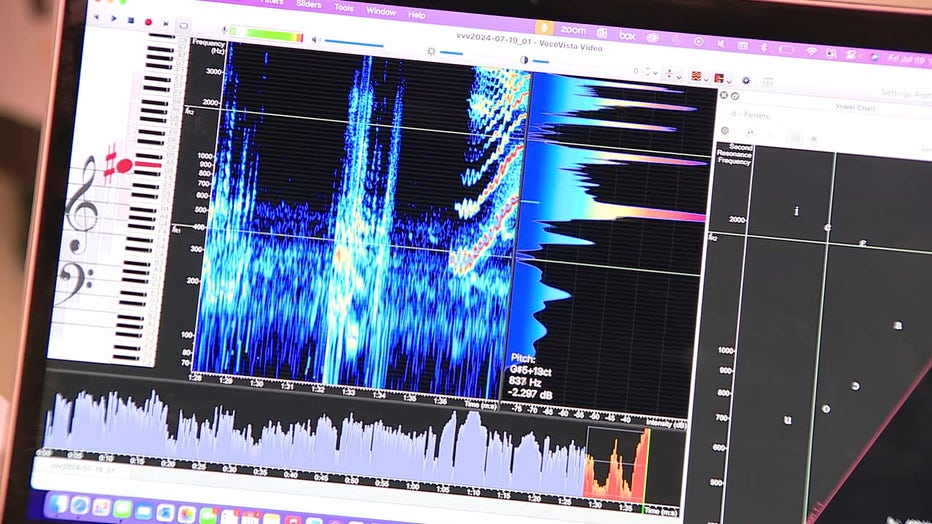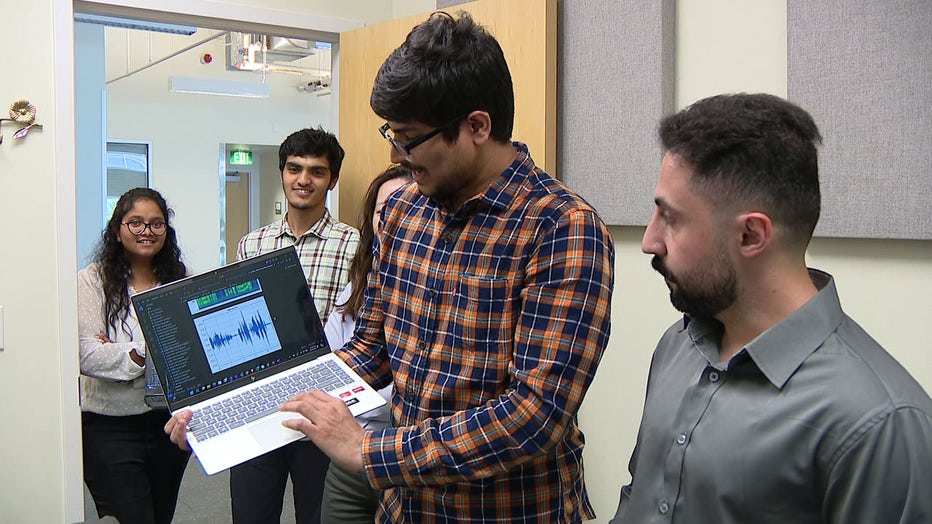USF becomes one of four universities with new AI voice course aimed at detecting certain health conditions
TAMPA, Fla. - The University of South Florida is now one of four universities offering a course that uses artificial intelligence and a person's voice to identify certain health conditions.
The new AI voice summer course is part of a broader program called Bridge2AI using the technology to study health markers through a patient's voice. Doctors said the technology could ultimately help catch and potentially even prevent certain diseases.
"Laryngeal cancers, vocal cord paralysis, to Parkinson's, Alzheimer's, even other types of respiratory diseases," said Dr. Yael Bensoussan, a USF assistant professor and the principal investigator on Bridge2AI Voice.
READ: AI-powered smart mosquito trap developed at USF to help fight spread of malaria, save lives abroad
Bensoussan said they are working to build a database of 10,000 voices from patients with different types of illnesses.
"And we link it to their health information for artificial intelligence models to be able to learn from this information," Bensoussan said.
Students and researchers listen to voice recordings and look for different voice patterns, vocal characteristics and nuances.

"The way they talk, the way they breathe and how loud they are able to breathe and how loud they are able to talk with people," Shrramana Ganesh Sudhakar, a graduate student in the course, said.
HEALTH: Bay Area hospital using AI technology for new cardiac procedure
USF Health and USF Engineering students in the course will put that data they collect into AI technology.
"I, then, can find things that I wouldn't have seen with my eyes or heard things with my ears that are it's kind of reading in between the lines," USF Associate Professor Dr. Karim Hanna said.
The AI technology can help pick up on other nuances, which could point doctors in the direction of diagnoses or health markers that they wouldn’t otherwise have detected.
Bensoussan said your voice can carry a lot of information, and is at the core of a lot of physical and mental functions.
"We see so many laryngeal cancers, so cancers of the voice box, that are caught too late, right?" she said. "Where it's an advanced stage, we have to remove the whole voice box. And when you ask patients, when did your voice change? They say, ‘Two years ago.’"
MORE: Nearly half of US adult cancer deaths could be prevented by lifestyle changes, study finds

Doctors hope that eventually, this program will help develop voice technology for patients to record their voice from home.
"I can't send a CT scan to your bedroom," Hanna said. "But, I can send a recording, or a tool to record your voice."
Doctors said this technology could help advance and change the way they practice medicine.
"It's really going to change the trajectory of how we diagnose things," Hanna said.
Doctors with the program said the main database only shows the visual graphs of the recordings, and not the actual audio. Bensoussan said that data set can be shared more broadly.
"Then we have another type of data set where that's a lot more secure, where we can share the raw voice data, but it's only for researchers that have to apply through contracts," she said.
She said this data set is for authorized users only, and that there are safeguards in place to protect patients’ voice data.
WATCH FOX 13 NEWS:
SIGN UP: Click here to sign up for the FOX 13 daily newsletter

